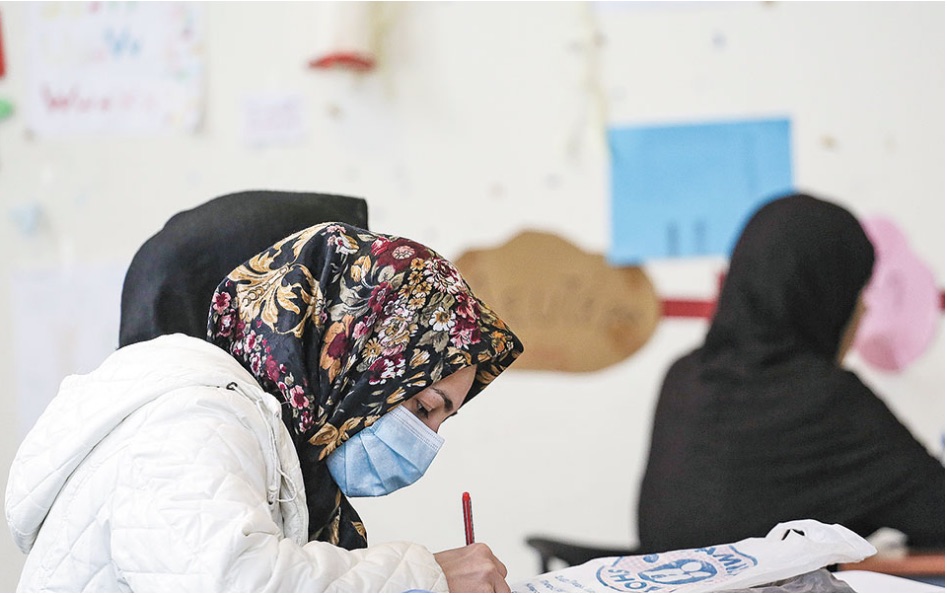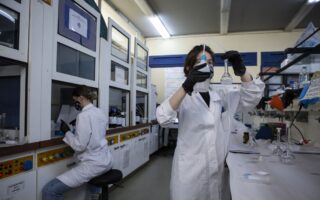Demographic crisis and immigration

Immigration is a topic that is sure to animate any political discussion and campaign. Unmanaged it risks elevating the extreme right to positions of power. And yet the flip side of all this is an enormous opportunity to boost Western liberal democracy and infuse it with the dynamism it now lacks. Stagnation and aging are the real threat to our way of life and the long-term crisis nobody wants to talk about. The solution lies in well-managed immigration.
The West and Greece in particular are in the midst of a worsening demographic crisis. The OECD average fertility rate is 1.58 children per woman and in Greece it is currently 1.43 children per woman. These numbers are well below population replacement and judging from Korea with a fertility rate of 0.81, they can fall even lower as the cost of raising a child able to thrive in a modern economy rises inexorably. The Greek population is shrinking. By 2050, under current trends, it will have declined to 9 million, and ominously those aged under 20 will have declined by 20%.
All these trends will see rapid aging of the population and an increase of what economists call the dependency ratio: At present there are 39 people over 65 for every 100 working-age people. By 2050 this number is predicted to climb to 75. These are dramatic developments, and assuming fertility rates remain where they are, they imply a rapid decline of standards of living that can only be counteracted by strong productivity growth and by immigration.
Of course, if productivity grew fast enough to counteract the aging population, the problem would go away. But this is unlikely. Current productivity is the same as it was 25 years ago, meaning that the amount produced per worker has not increased at all. And compared to 45 years ago productivity now is just 23% higher, a 0.46% annual increase! This reflects the sclerosis in the Greek economy about which many of us have repeatedly written. However, even if all the reforms we advocated in the “Pissarides report” are implemented it is unlikely that productivity growth will counteract the forces of aging and population decline, although it will lay the foundations required for a dynamic economy, reducing the brain drain and out-migration of the young.
Another approach is to create the conditions to prevent further declines in fertility and even increase it. The wide availability of high-quality early childhood education centers will reduce the costs of raising a child, promote female employment and improve child development and schooling outcomes, all working in the right direction. The above are key measures to address the crisis. But they can only go so far. They need to be complemented by immigration policies. Only by allowing young people from countries with high fertility rates to settle and work in Greece can we hope to preserve a dynamic and growing economy.
There are many countries across the developing world with an excess of young people with the aspiration and ambition to succeed, if only they were allowed to. They will do almost anything to migrate towards opportunity, as we have seen by the thousands who die in the process. Indeed, world history is marked by population movements. They lead to renewed dynamism and to the necessary cross-fertilization of cultures. I would say these are forces of nature and instead of resisting them we should use them to our advantage. Instead of treating migration as a crime or a problem we should treat it as an opportunity and design policies to manage it successfully, both economically and socially.
Greece should design a migration program allowing enough legal immigrants to counteract the aging population. This is not easy. There is the problem of language and the issue of integrating migrants into our system of culture and values, while being prepared to accept a diversity of approaches to life. To achieve this, we should invest heavily in education for the children as well as civic training for adults who seek to become permanent residents. There should be a clear path to citizenship for all permanent residents. For the professionals, such as doctors, we need to offer programs that ensure all qualifications are up to a standard required, so that they can use their much-needed skills.
The education of the children will have to take priority, with high-quality programs, recognizing the importance of mastering the Greek language, being sensitive to their culture of origin, while at the same time ensuring a deep understanding of the culture and values of Western liberal democracy, including the rights of women and of the LGBTQ community. We also need to ensure they have the opportunity and incentives to work. A reform program opening up the economy and promoting entrepreneurship will play a key role here. We want migrants to land in an economy where they can easily find work and do not expect social support.
All this is costly, but if we start now, with a reasonable rate of migration, just enough to counteract aging, and we treat it as an investment in the future of our country, it is manageable. If we leave it to later, it will become almost impossible to achieve and will lead to social upheaval because of the number of people we will need to admit at once.
Such a program is politically difficult. People are worried and often suspicious of foreigners with very different cultures. So, it is crucial that the program is credible. One important step is to prevent unauthorized migration. People have to be convinced that the rule of law is paramount, and that migration is a purposeful policy under the control of the government. Only then will they see migration as an opportunity to create a dynamic economy guaranteeing increasing standards of living without erosion of our core values of Western liberal democracy.
Costas Meghir is the Douglas A. Warner III Professor of Economics at Yale University and served as a member of the Pissarides commission.





